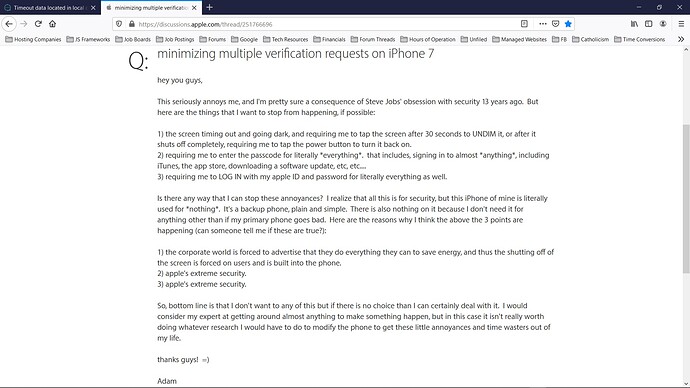can anyone tell me how to modify a timeout for a web app when logged in? Here are the known specs:
=> there is no session hash in the URL when logging in.
=> default timeout for no transacting activity is 5 minutes.
I really have no way to know if the timeout is located in the local cookie or stored in the web app [session] itself. It’s a large PHP application that I’m referring to. and before anyone asks, no it’s not a hacking attempt. This is simply an attempt by me to stop this little annoyance. I realize that a lot of people do this sort of thing for security reasons. Also, every transaction on the website (moving from page to page, clicking buttons) results in more than one file with a hash-based name being put in firefox’s cache.
Thanks.
Adam

